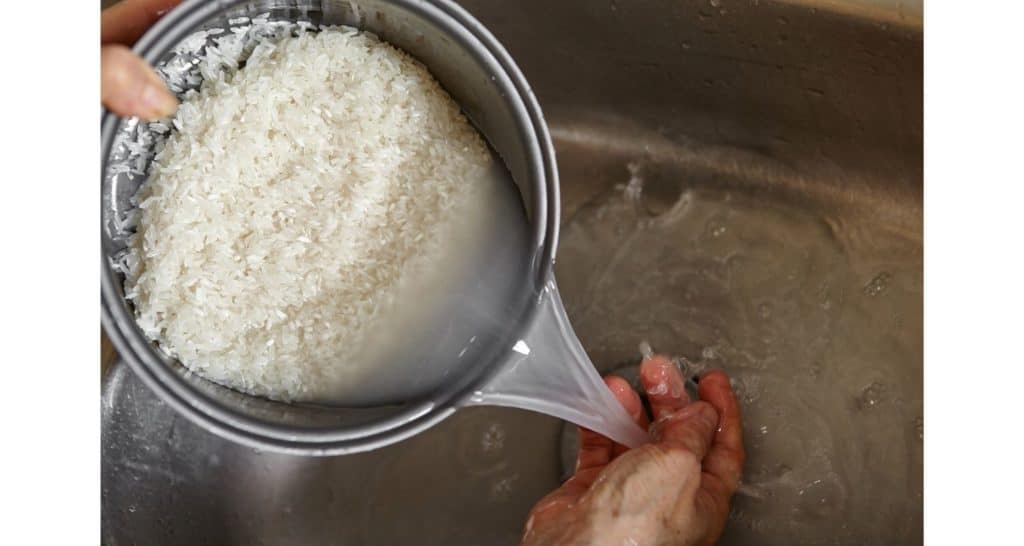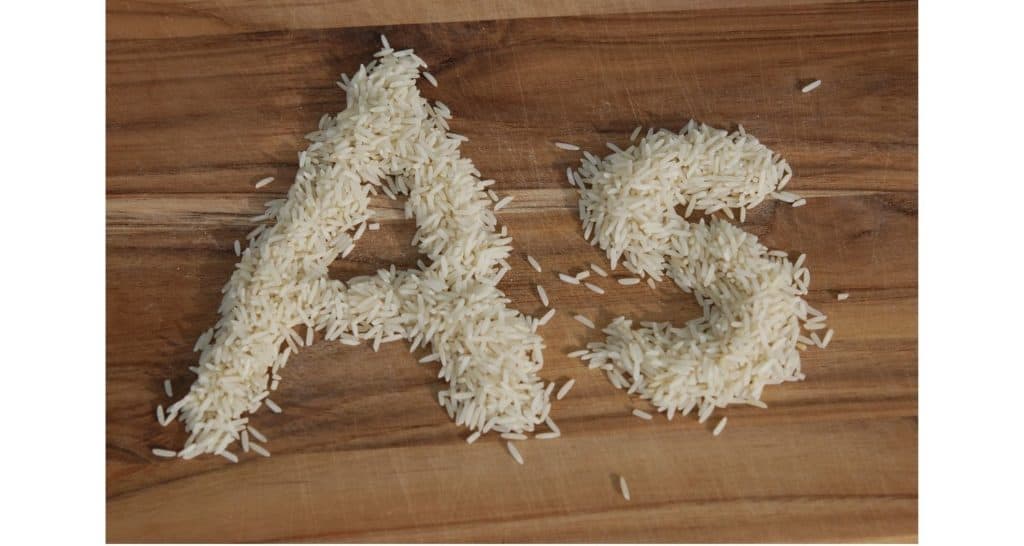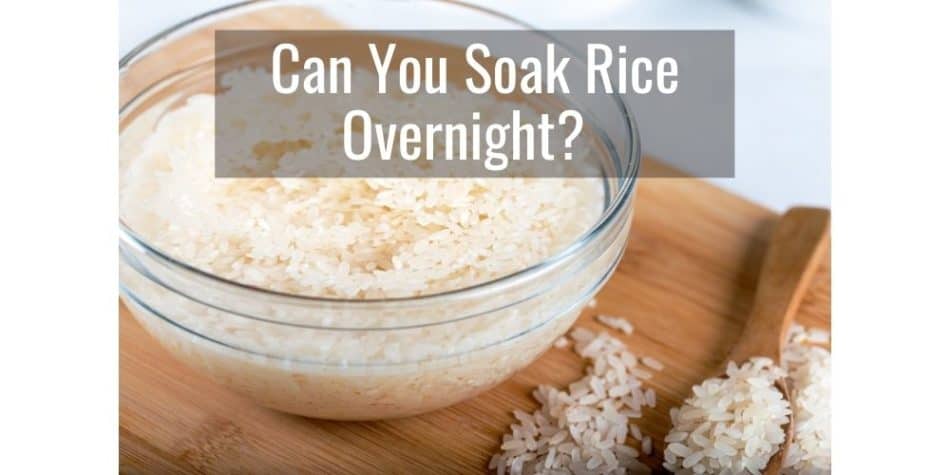Do you love rice? Rice can either complement or be the star of any dish. But have you ever soaked your rice before cooking it?
When checking a middle east recipe, you will most likely be instructed to soak the rice before cooking it. This is somehow unusual for other cultures, but no doubt, soaking rice will make your dishes even tastier.
But why do some of us soak rice overnight while others just quickly rinse before cooking?
So, can you soak rice overnight?
Rice can safely be soaked overnight at room temperature or in the refrigerator. There are benefits to soaking rice such as removing the surface starches, allowing the rice to absorb water, and removing toxins such as arsenic.
Although not necessary for some rice strains such as jasmine rice, soaking the rice overnight will produce fluffier rice that has lower levels of arsenic and other contaminants.
Even though rice is considered a healthy food when included in our diet, the toxins that can be found in the soil can harm many people’s health.
Recent studies have found a high level of arsenic in rice. Arsenic is one of the most toxic components in the world. The fact that arsenic found its way through the food chain is a big health concern.
Let’s cover the reasons why you should soak, or at least rinse your rice before cooking it.
If you are interested in checking out the best rice cookers, you can find them by clicking here.
Why We Rinse Rice Before Cooking
In order to see why soaking rice would be beneficial, we need to understand why we rinse rice before cooking it.
Rising rice does two important things:
- Removes any dirt or other debris that’s in the rice
- Removes surface starches
You’ll notice that when you first rinse your rice the water will be a milky white color. This is from all the surface starch that is being washed out of the rice.

If you do not rinse your rice before cooking it, you will notice that the rinse tends to clump together or get gummy as it cooks.
So rinsing your rice is a mandatory and simple step to cooking better tasting and healthier rice.
Why We Should Soak Rice Before Cooking
Rice can be soaked for as little as 30 minutes if you’re in a time crunch, or as long as overnight.
The benefit of soaking rice is that it will allow more of the surface starches to detach themselves from the rice. This means you should be able to give your rice another rinse or two after soaking and see fairly clear water.
The other benefit of soaking rice is that it will help remove toxins and contaminants that the rice may have absorbed.
Rice is grown in flood fields which means it consumes a lot of water. Unfortunately with factory farming, pesticides and herbicides have become more common with growing produce. This tends to leech into the water.
Now I’m not saying all rice is contaminated with toxins, but it certainly cannot hurt to take some simple precautions that would remove any toxins in your rice, if there are any.
The most common toxin found in rice is arsenic.
What Is Arsenic?
Arsenic is a toxic component that commonly exists in our environment. Arsenic is broken into two groups, organic and inorganic arsenic.
While organic arsenic is found on animals and plants, inorganic arsenic is found on water, rocks, or soil. Inorganic arsenic is the most toxic variation of this toxin.
Even though arsenic is a natural toxin found in our environment, pollution caused by humanity increased our environment’s arsenic levels. This poses a big danger to people’s health.
Arsenic is attached to many foods and drinks that we consume. However, this usually happens in minimal traces, which will not impact our health.
When it comes to rice, water, and even seafood, the amounts of arsenic are usually much greater, and that will, of course, pose a bigger threat to our health.

When it comes to seafood, even though there are larger amounts of arsenic, this is mainly organic arsenic, meaning that it is not as harmful to our health.
But water and rice do contain inorganic arsenic, which is very harmful.
What Are The Dangers Of Consuming Arsenic?
Consuming high doses of arsenic is dangerous, causing many different symptoms, which can be fatal.
Not only that, but studies have linked high levels of arsenic to many diseases that are a threat to our health, such as:
Arsenic can also affect the brain’s function because its toxicity is harmful to our nerve cells.
In children, arsenic has been proven to negatively affect their development and learning. And there are even studies on how arsenic can affect an unborn child when arsenic is ingested during pregnancy.
How To Reduce Arsenic In Rice
There is no doubt that arsenic is a health concern. Even though rice is still an important part of our diets, we should take measures to ensure that we can reduce the amount of arsenic in our rice.
You can reduce arsenic in your rice by simply soaking the rice before cooking.
By washing the rice before cooking it, you will potentially reduce arsenic levels by up to 57%.
Soaking rice loosens up the rice grain’s composition, releasing the arsenic found in the grains. This is why you should soak rice overnight before cooking it at all times.
Andy Meharg, a published scientist and a professor at the School of Biological Sciences at Queens University Belfast, has experimented with reducing the most arsenic rice levels.
Here are the two methods that he used and their results:
- On his first attempt, he cooked 5 parts of water to 1 part rice. He removed the excess water and washed the rice after cooking. According to Professor Meharg, this removed close to 50% of arsenic.
- On his other experiment, he soaked rice overnight, then washed it thoroughly (until the water ran clear) before cooking as well as removing the excess water at the end. And this time, according to professor Meharg, the arsenic levels were down by 80%.
This proves that it’s possible to still enjoy rice worry-free without having rice harm our health.
The unfortunate reality is that arsenic is a part of our lives but it doesn’t have to be a huge threat when rice is properly prepared. It’s also worth knowing that certain rice varieties such as basmati and jasmine do not contain as much arsenic as other types of rice.
Conclusion
A large portion of the world’s population consumes rice as their main food source. This means that millions of people could be put at risk of developing health problems related to arsenic intoxication.
However, if you consume rice as a part of a diverse and balanced diet, you should be completely fine.
Please share this information with your friends and family to help keep everyone out of arsenic danger while enjoying the delicious taste of rice.

